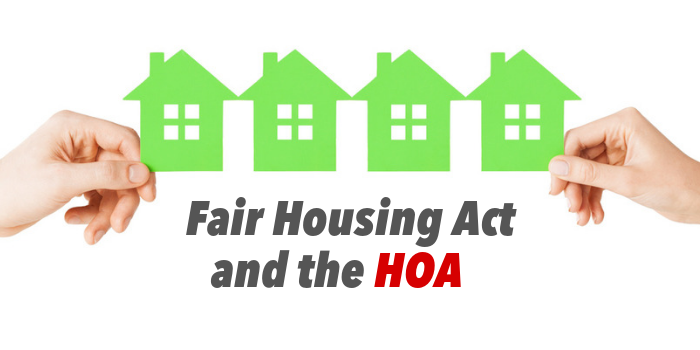The U.S. Justice Department states that the Fair Housing Act applies to “individuals, corporations, associations, and others involved in the provision of housing and residential lending, including property owners, housing managers, homeowners and condominium associations, lenders, real estate agents, and brokerage services.” HOAs fall under the umbrella of the Fair Housing Act and should take care to comply with its obligations.
Fair Housing Act History
Also known as Title VIII of the Civil Rights Act of 1968, the Fair Housing Act was passed by Congress under U.S. President Lyndon B. Johnson. The act was designed to solve a nationwide issue of unlawful housing discrimination due to color, race, religion, sex, nationality, familial status, or disability. It protects people from discrimination when they are renting, buying, or securing financing for housing.
FHA Updates and Their Effect
In October 2016, the Department of Housing and Urban Development (HUD) introduced new rules that may impact HOAs and about which associations must be aware. The new rules identify two types of harassment that are recognized by the FHA:
- Quid Pro Quo. Quid pro quo harassment is considered a “this for that” exchange and occurs when a tenant is submitted to an unwelcome request from a housing provider to obtain or maintain housing-related services. In an HOA setting, for example, if a tenant is prohibited from using association amenities because he/she refuses to have dinner with a board member, that may be considered quid pro quo harassment.
- Hostile Environment. This type of harassment, also recognized by the FHA, applies to harassment based on a protected class (i.e. religion, race, color, handicap, etc.), and is defined as unwelcome, pervasive, or severe conduct that interferes with the use and/or enjoyment of facilities or services. Hostile Environment Harassment may include intimidation, threats, interference, or coercion against the homeowner.
HOA Preparation
So, what can an HOA do to best comply with the FHA and avoid possible legal action? Because each case is unique and the laws related to housing discrimination are complex, it’s a good idea for association boards to meet with a lawyer about the potential need to update their rules and regulations in regard to the FHA, as well as to gain a better understanding of their state’s specific Fair Housing Act to avoid potential costly mistakes.
For more questions regarding HOA property management, contact Spectrum Association Management today and see what makes us refreshingly different from other companies.








Your wrap-up comment is on target: the HOA needs to meet with a community association law firm, one which specializes in HOA issues and only represents community associations.
Thanks for the article.